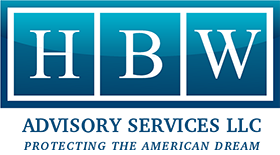
Business Owner
As a business owner there are many actives that consume our time. Sometimes it is difficult to carve out time to address important issues such as Buy-Sell Agreements, Disability Insurance, Life Insurance, and employee benefits (Group Health Insurance and Retirement Plans). Many of these items are critical for the owner as well as the employees. Employee Benefits are crucial for employee retention and to attract talented employees.
An effective Business/Group retirement plan begins with sound plan design strategy and grows with attentive execution. There are many options that a business can select to have a positive impact on employee retention along with supporting the needs to the owner(s).
- Employer-sponsored IRAs are ideal for small business owners desiring to offer their employees a retirement plan.A)
A) Simplified Employee Pension IRAs (SEP IRAs) are funded 100 percent by the employer; employees do not contribute. The employer is not required to make a contribution every year but must contribute the same percentage for employees that they contribute for themselves in a given year.
B) Savings Incentive Match Plan IRAs (SIMPLE IRAs) enable employers with fewer than 100 employees to establish an IRA for each participating employee. Employers must also contribute to the accounts by either matching employees’ contributions dollar for dollar for up to 3 percent of the employee’s compensation, or contributing 2 percent of each eligible employee’s compensation.
- 401(k) Plans -Perhaps the most well-known retirement plan, a traditional 401(k) allows employees to contribute a portion of their wages to individual accounts. Employers have the option to make and/or match contributions on behalf of plan participants. There are several types of 401(k) plans available, and it’s important to understand the features of each one before choosing a plan for your business.
A) Solo 401(k) Plans are similar to self-directed IRAs. but are suitable only for single-employee businesses
B) Safe Harbor 401(k) Plans mandate that employer contributions be vested as soon as they are made. Therefore, employees can take the money with them when they leave the company, regardless of how long they have been there. Safe harbor 401(k) plan sponsors are not subject to the annual IRS test.
- Profit-Sharing Plans – Any employer with employees who have worked at least 1,000 hours in the previous year can offer a profit-sharing retirement savings plan. The U.S. Department of Labor states the maximum annual contribution for this plan for 2018 is $54,000 or up to 100 percent of any employee’s compensation if it’s below $54,000.
Small business owners should ask themselves these questions before deciding on a retirement plan:
- Do you prefer simple administration?
- Do you expect to have employees?
- Is it critical that your employees be able to contribute to the plan?
- Will it be important to attract and keep good employees?
- Do you want to maximize your contributions?
- Will you want to contribute every year?
- Do you want plan contributions to be deductible as a business expense?
Design elements impact every aspect of your plan—from investments and recordkeeping to compliance and communication.
Plan sponsors face intense scrutiny by Congress and the Department of Labor over real or suspected ERISA violations. Failure to manage this risk is costly, and employee litigation is on the rise
Fiduciary Compliance – Surprisingly, many companies do not know their fiduciary responsibilities under the law.




